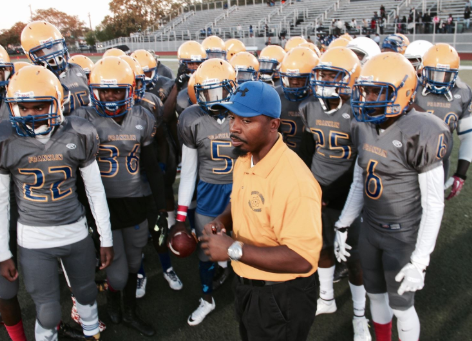Avi Cantor
Staff Writer
The Science Leadership Academy community is no stranger to budget cuts and overall financial issues. From having a small donor base to pull from for fundraising events, to not having enough money to have teachers for Spanish 3 and 4, SLA and every other Philadelphia public school has had to wrestle with funding issues.
The latest victim of such problems is the SLA and Ben Franklin sports teams.
According to SLA athletic director Matt Kay, all teams will merge with the exception of the boy’s and girl’s basketball teams.
“[The merge was decided upon] to save money so that they don’t have to pay all the coaches,” Kay stated.
He continued by explaining that there were no meetings with the President of the Public League Jimmy Lynch, to debate this issue. “We didn’t have a choice,” he explained.

While the veteran English teacher’s statements may have been a bit blunt, he has a point. For years, the school district has been finding new ways to cut certain programs that aren’t directly tied to the required curriculum for public schools.
Such cuts include the defunding of art, computer science, drama and theater programs across the city that have left schools across the city without creative ways to express themselves outside the classroom.
However, when it comes to athletics at SLA, this decision could have several different implications.
Possibly the most optimal would be that the sports teams could become more competitive. Given that teams will now have more players who will be able to try out, there is a higher likelihood of creating a stronger, more competitive team.
For example, at least two SLA students–freshman Zahfir McCullough and sophomore Kyree Yates–plan to try out for the Ben Franklin football team and will likely prove to be useful assets for a developing squad that went 7-5 last season.
However, the downsides are much more abundant than the upsides.
Junior Amani Harb explained that the SLA volleyball team needs very few if any new players. She added that creating a junior varsity team likely comprised of mainly Ben Franklin girls might make for ineffective practices for the girls who already know the game quite well.
“Practice isn’t practice it’s you being a teacher to people who don’t know volleyball,” Harb said.
Another issue that this competitive edge may create is a decline in students who just want to try a sport out. If an under experienced student saw a highly competitive baseball team, for example, they may not want to try out fearing that they’ll be well behind their higher skilled counterparts.
To say that this decision is definitively bad or good is hard to say but how both schools approach sports will forever be altered.


